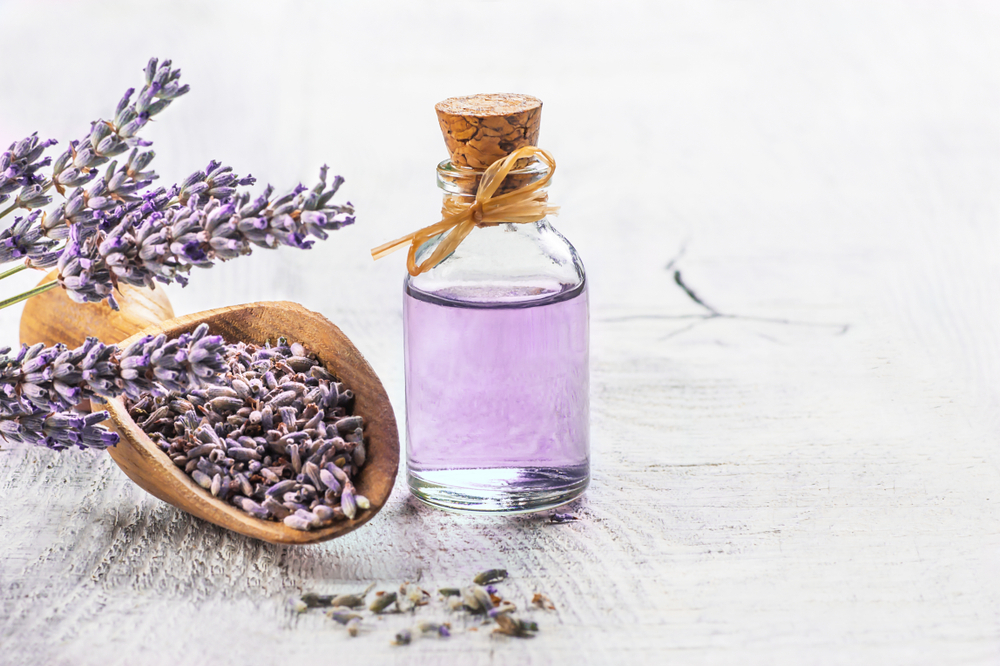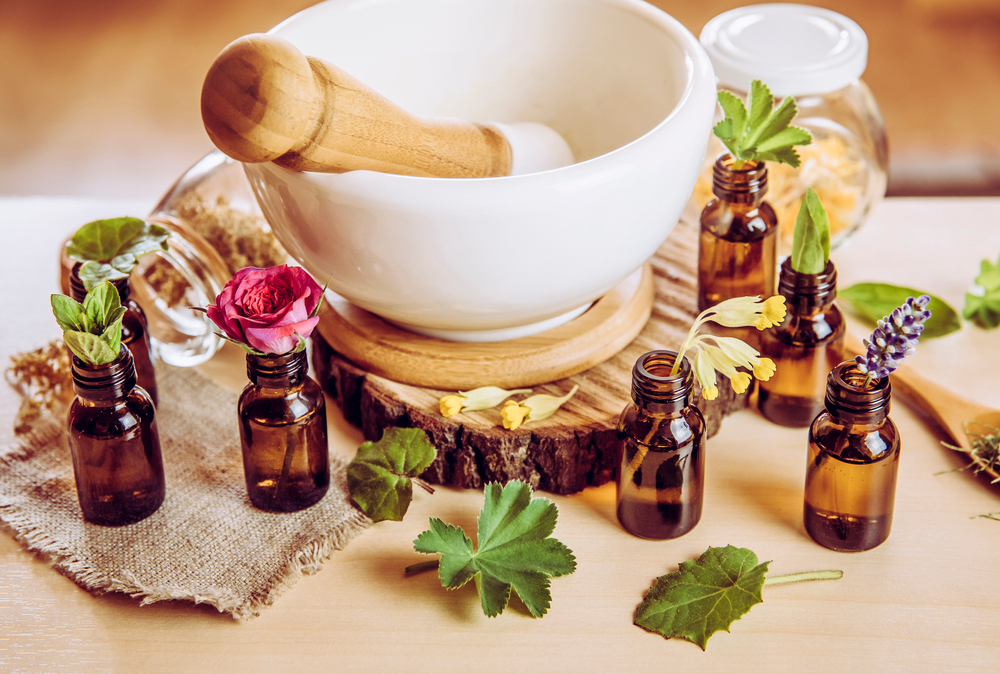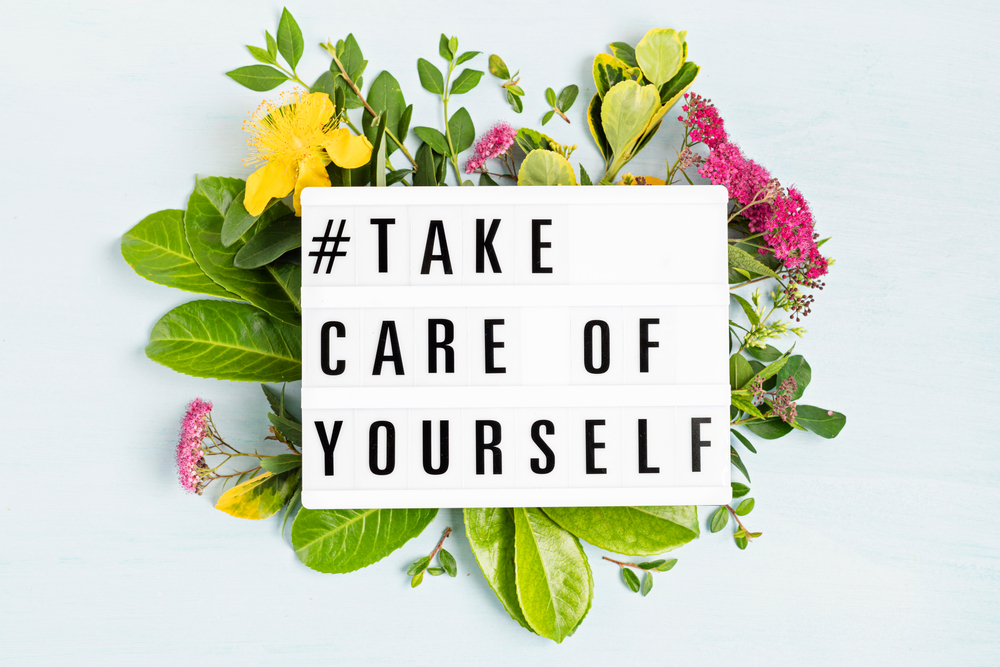Essential Oils and Nutrition: Harnessing Aromatherapy for Stress Relief

Table of Contents
In the fast-paced world we live in, stress has become a common factor in our lives, impacting our mental and physical well-being. While there are various methods for addressing stress, harnessing the power of essential oils and nutrition through aromatherapy offers a natural and holistic approach. This article explores how essential oils and nutrition can synergistically work hand in hand to provide effective stress relief while promoting overall wellness.
Understanding Aromatherapy

In a world that moves at lightning speed, our minds and bodies often get tangled up in the hustle, which can lead to a lot of stress. That’s where aromatherapy steps in! Aromatherapy is like a best friend for your senses, using the natural magic of plant extracts to help you chill out and find your zen. It’s not just about delightful smells; it’s a serious boost for your wellbeing, creating peace and comfort when life throws curveballs your way. We’ll unravel how this ancient practice can be your modern-day superhero in the battle against stress.
Definition of Aromatherapy
Aromatherapy is a therapeutic practice that uses natural plant extracts, often called essential oils, to promote health and well-being. It’s an ancient art, stretching back thousands of years, used not only to ease stress but also to uplift moods and boost physical health. What’s really cool about aromatherapy is that it taps into the sense of smell to encourage your body to heal and your mind to relax.
Think of it as grabbing a breath of fresh air in a pine forest or the calm feeling you get when you sniff a bunch of fresh lavender. That’s the essence of aromatherapy—using these powerful scents to trigger positive responses in the brain and body. The beauty lies in its simplicity: a deeply relaxing experience can begin just by breathing in the soothing scent of these oils.
Benefits of Aromatherapy for Stress Relief
Aromatherapy is like having a personal relaxation coach, always ready to help ease your mind and calm your nerves. It’s a simple way to let nature’s fragrances chase away the stress of the day. By using essential oils, which are extracted from plants, flowers, and herbs, aromatherapy taps into our sense of smell to provide a direct path to feeling better. It’s an age-old trick to help us unwind after a long day, or center our thoughts when life gets a bit too hectic.
When we inhale these soothing scents, they send messages right to our brain, telling it to chill out and let go of the tension. Lavender oil, for example, is like the king of stress relief. It’s kind of famous for its ability to make you feel more relaxed and might even help you get better sleep. Then there’s peppermint oil, which acts like a cool breeze on your brain, giving you a boost of alertness and clearing the mental fog. Aromatherapy lets your worries melt away and can be a big help for making those stress knots in your shoulders a thing of the past.
Exploring Essential Oils

Diving into the world of essential oils is like finding a key to a secret garden of scents, each with the potential to soothe, invigorate, or heal. These natural essences, extracted from plants, carry the very essence of their source, offering not just delightful aromas but also therapeutic benefits. As we explore how these oils can aid in easing stress, it’s important to remember that their power lies not just in their fragrance but in their ability to interact with our body and mind in diverse and profound ways.
Introduction to Essential Oils
Essential oils are like nature’s little miracle workers, each packed with a unique set of properties that can soothe the mind and the body. Think of them as concentrated plant essences—every little bottle is a result of meticulous processes like distillation or cold-pressing to extract the powerful aromatic compounds from flowers, leaves, bark, or roots. These essences have been used for centuries, not only for their rich scents but also for their therapeutic benefits.
When inhaled or applied to the skin, these oils can have a profound effect on the body’s stress response. Different oils offer different perks; some can lift your spirits, while others might calm your thoughts or soothe tense muscles. It’s all about finding the right oil to match the stress-relief you’re seeking. And the best part? They’re super easy to integrate into your daily routine, whether it’s through a diffuser in your home or a few drops in your bath.
Key Essential Oils for Stress Relief
When life gets hectic, reaching for a bottle of nature’s gift might be just what you need to calm the storm. Essential oils, known for their aromatic compounds, don’t just smell good but can also provide a helpful nudge in reducing stress. Lavender oil, famous for its soothing scent, has been shown to lower blood pressure, heart rate, and skin temperature, which are physical signs of stress. A few drops of lavender in your bath or on your pillow can do wonders for a restless mind.
Another powerhouse is Frankincense oil, often used in meditation for its grounding effects. It promotes deep breathing and tranquility, making your worries feel a little lighter. Meanwhile, Chamomile, not just as great as tea, delivers its stress-relieving qualities as an oil, helping to ease anxiety and improve sleep. It’s like wrapping yourself in a warm, comforting blanket. To use these oils, you can simply add them to a diffuser, mix them with a carrier oil for a relaxing massage, or sprinkle a few drops onto a handkerchief to keep the calming aroma with you throughout the day.
Nutrition for Stress Relief

When we’re feeling stressed, it isn’t just our minds that are affected—our bodies feel it too. That’s where what we eat becomes a game-changer in managing our stress levels. Filling our plates with the right foods can help soothe our nervous system and stabilize mood swings. So, if you’re looking to combat stress, paying attention to your nutrition is key. It’s like having a secret weapon in your pantry that supports your overall battle against tension.
Impact of Nutrition on Stress Levels
Did you know that what’s on your plate can affect your stress levels? That’s right – the food we eat plays a crucial role in how we handle stress. When our bodies face stress, they need the right fuel to manage it effectively and bounce back. Foods packed with vitamins and minerals can help balance our mood and strengthen our body’s response to stress. On the flip side, a diet loaded with sugar and unhealthy fats may increase our stress levels and even lead to feelings of anxiety.
Imagine your body as a high-performance vehicle. Just as premium fuel can keep the car running smoothly, nutritious foods keep our bodies at their best. Eating a balanced diet ensures we have a stable supply of energy throughout the day, reducing the highs and lows that can make us feel jittery or anxious. Next time you’re feeling the weight of the world on your shoulders, consider reaching for a leafy green salad or a piece of fruit, instead of a candy bar. Remember, good nutrition is a powerful tool that helps keep stress at bay!
Foods and Nutrients for Stress Management
Eating the right stuff can make a huge difference when you’re feeling stressed out. Magnesium, found in leafy greens like spinach, is big on the stress-relief scene. It chills your nerves and muscles, keeping things calm. Another big gun in the fight against tension is vitamin C; foods like oranges and strawberries can tame your stress hormones.
Let’s not forget about omega-3 fatty acids. These hearty nutrients, swimming around in fish like salmon and sardines, can help smooth out mood swings. And for dessert? Dark chocolate! Yep, a small bite of dark chocolate has antioxidants that help dial down the stress. Add in some complex carbs, like whole grains, and you’re on your way to a calmer mind and body. They help your brain make serotonin, the feel-good hormone that tells stress to take a hike.
Synergy of Essential Oils and Nutrition

When we blend the calming scents of essential oils with the right foods, it’s like a superhero team-up for our well-being. Imagine your sense of smell and taste coming together to not just fight off stress, but to help your entire body feel more in harmony. This combo isn’t just about relaxation; it’s about fine-tuning our insides like a well-oiled machine. Let’s take a deep dive into how aromatherapy and thoughtful eating can join forces to keep stress at bay and elevate our health to new heights.
Combining Aromatherapy and Nutrition for Optimal Stress Relief
When we think about stress relief, we often separate the remedies into categories like diet or aromatherapy. But what if we combine them? Merging aromatherapy with a nourishing diet can unlock new levels of calm and balance in our lives.
Imagine the gentle scent of lavender paired with a warm, chamomile tea before bed. This combination not only soothes your senses but also encourages a deeper sleep. Studies suggest that certain scents can trigger a restful state while balanced meals stabilize blood sugar levels, reducing anxiety. By integrating the two, we’re essentially giving our body and mind a double dose of tranquility.
Recipes and Blends for Combined Aromatherapy and Nutrition Benefits
In the quest for serenity, whipping up some magic in the kitchen isn’t just about taste—it’s also about aroma and nutritional balance. Imagine sipping a warm tea infused with lavender oil, renowned for its calming properties, while reaping the benefits of antioxidants. Or picture a morning smoothie, blending the zest of citrus oils with spinach and bananas to invigorate your senses and kick-start your day with a dose of vitamins.
Crafting your own mixes can be both fun and therapeutic. Peppermint oil tossed with almonds and dark chocolate not only satisfies your sweet tooth but also provides a refreshing twist and an energy boost. For dinner, a dash of rosemary oil in a quinoa and grilled veggies bowl can elevate the meal’s flavor and support your body’s stress response. With each blend and recipe, you’re nurturing your body with a fusion of scents and nutrients designed to soothe your mind and strengthen your well-being.
Practical Tips for Incorporating Aromatherapy and Nutrition

You’ve heard how the soothing scents of aromatherapy and the right food choices can work miracles for stress relief. But how do you make these elements a regular part of your life? Stick around, because we’re diving into some doable strategies. Whether you’re at home, at work, or on the go, these techniques are designed to weave the calming essence of aromatherapy and the fortifying power of good nutrition into your daily tapestry with ease.
Integrating Aromatherapy into Your Daily Routine
Incorporating aromatherapy into your daily life is a breeze and can happen in so many simple ways. Morning routines are a great place to start, considering how they set the tone for the entire day. Imagine waking up to the soothing scent of lavender or the refreshing aroma of peppermint. By adding a few drops of these essential oils to your shower floor or diffusing them as you get ready, you can kickstart your day feeling relaxed and recharged.
As the day unfolds, having small, scented accessories, like a personal inhaler or a jewelry piece with absorbent materials, can be super handy. These allow you to take the calming benefits of essential oils with you wherever you go. Evening rituals are just as important. To wind down, a diffuser by your bedside can work magic, releasing tranquil aromas that prepare your mind and body for restful sleep. Remember, regularity is key – the more consistent you are with these habits, the more you’ll feel the stress just melt away.
Creating Stress-Relieving Meals and Snacks with Essential Oils
When it comes to unwinding and getting that stress off your shoulders, your diet can be a superpower! Imagine munching on a snack or savoring a meal that not only pleases your taste buds but also calms your nerves. You can jazz up your food with essential oils to make this happen. Start by choosing oils that are okay to ingest, like peppermint, lemon, or lavender – they’re not just for smelling!
Here’s the cool part: by adding a drop or two of these oils to your recipes, you can create an extraordinary experience. Try stirring a little peppermint oil into a chocolate smoothie or a few drops of lemon oil in your water. These subtle twists can turn simple eats into stress-relief treats. But hey, remember to chat with a healthcare pro before diving in; you want to make sure you’re using these oils safely.
Lifestyle and Mindfulness Practices

Living stress-free isn’t just about what we can add to our lives, like the soothing scents of aromatherapy or the right food choices. It’s also very much about the way we live our everyday lives. Mindfulness and healthy lifestyle choices play a massive role in keeping our stress levels down. These practices help us tune into the present moment, making it easier to brush off worries and anxieties that can take a toll on our health. Let’s dive into how blending mindfulness with everyday habits can create a serene mental landscape, where stress struggles to find a foothold.
Complementary Practices for Stress Reduction
While essential oils and healthy eating are powerful in fighting stress, adding complementary practices to your routine can boost your stress-busting arsenal. Think of yoga, meditation, or deep breathing exercises—they’re like the best friends who always have your back when tension builds up. These activities help to slow down your mind, making you more present and less worried about the million things to do list.
Pairing these mindfulness practices with aromatherapy turns your stress relief session into an ultra-calming experience. Imagine inhaling the soothing scent of lavender while you move through a gentle yoga flow or meditating to the citrusy notes of bergamot—it’s like a mini vacation for your senses. These practices don’t just ease your mind; they also encourage your body to release all that pent-up tension, helping you to feel more relaxed and focused.
Creating a Holistic Stress-Relieving Lifestyle
Adopting a holistic approach to stress relief means looking at the bigger picture of your lifestyle. It’s not just about what you smell or eat; it’s about creating an environment that supports relaxation and balance across all areas of your life. To do this, think about incorporating practices like yoga or meditation, which can enhance the calming effects of aromatherapy and good nutrition.
Moreover, ensuring that you have a routine that includes adequate sleep, regular physical activity, and time for hobbies or socializing contributes to a stress-relieving lifestyle. These activities pair extremely well with the soothing properties of essential oils and the stability provided by a nutritious diet, working together to bring a sense of harmony to your body and mind.
Promoting Overall Well-being

Well-being is like a garden that needs care and devotion. Just as a garden thrives with the right balance of sunlight, water, and soil, our bodies and minds flourish when we nurture them with the right elements. Aromatherapy joined with wholesome food choices creates a powerful duo, much like the sun and rain, which together can bring out the best in us, not just for now, but for the long haul. This section delves into the enduring impacts of this natural blend, and how maintaining this balance can lead to a harmony within that resonates in all areas of life.
Long-term Effects of Aromatherapy and Nutrition on Well-being
When you blend the soothing essence of aromatherapy with the power of good nutrition, you’re setting yourself up for a bright future. Think of it like planting a garden. Just as seeds need good soil and water to grow, your body and mind need a steady stream of healthy foods and calming scents to thrive.
Over time, using aromatic oils and eating nourishing foods can really change the game for your health. You might notice that you’re sleeping like a log night after night. Or that you wake up feeling like a superhero, ready to take on the day. It’s all about giving your body the care it needs so you can feel awesome every single day.
Maintaining Balance and Harmony in Body and Mind
Consistency is key when you’re trying to keep your body and mind in harmony. Aromatherapy and wise food choices are like two peas in a pod—they work better together. Imagine starting your day with a burst of citrus scent lifting your spirits, while a breakfast rich in omega-3s sharpens your mind. That’s the kind of synergy we’re talking about here.
But it’s not just about what you smell and eat; it’s also about crafting a routine that includes time for reflection and mindfulness. Taking a moment each day to meditate with the soothing aroma of lavender or carving out time to prepare nutritious meals can make a big difference. By doing these things, you’ll help ensure that the journey to well-being is smooth and that your stress levels are kept in check.
Conclusion
Harnessing the natural power of essential oils and nutrition through aromatherapy provides a promising and fulfilling means of combatting stress and promoting well-being. By understanding the benefits of aromatherapy, exploring essential oils and nutrition, and synergistically applying practical tips, individuals can embark on a transformative journey towards a more balanced and stress-relieved lifestyle.
FAQs
Q1: What aromatherapy oil is good for stress? A1: Lavender oil is often recommended for stress relief in aromatherapy. Its calming properties can help reduce stress and promote relaxation.
Q2: How does aromatherapy relieve stress? A2: Aromatherapy works by inhaling the aroma of essential oils, which can stimulate the olfactory system and impact the brain’s emotional center. Certain scents, like lavender or chamomile, have calming effects that can help relieve stress.
Q3: Does aromatherapy stress relief really work? A3: Yes, many people find aromatherapy effective for stress relief. The scents from essential oils can trigger emotional and physiological responses that contribute to relaxation and stress reduction.
Q4: What essential oils make stress away? A4: Essential oils such as lavender, chamomile, bergamot, and frankincense are known for their stress-relieving properties. These oils can be used individually or blended to create a personalized stress-relief aroma.
Q5: How does aromatherapy help with mental health? A5: Aromatherapy can positively impact mental health by promoting relaxation, reducing anxiety, and improving mood. Inhaling certain essential oils can trigger the release of neurotransmitters that influence emotions and stress levels.
Q6: What are the benefits of aromatherapy essential oils? A6: The benefits of aromatherapy essential oils extend beyond stress relief and may include improved sleep, enhanced mood, increased focus, and a sense of well-being. Different oils offer various therapeutic effects, catering to diverse aspects of mental and physical health.
Useful resources
- PubMed – Aromatherapy and Stress:
- PubMed is a reputable source for scientific articles. You can search for studies on aromatherapy and stress relief to find evidence-based information.
- Mayo Clinic – Aromatherapy Overview:
- The Mayo Clinic often provides comprehensive and reliable health information. Search for aromatherapy on their site for insights into its potential benefits and uses.
- WebMD – Aromatherapy for Stress Reduction:
- WebMD is a widely trusted source for health-related information. Check their articles on aromatherapy and stress to find practical advice and insights.
- Aromatherapy Institute or Associations:
- Look for websites of reputable aromatherapy institutes or associations. Organizations like the National Association for Holistic Aromatherapy (NAHA) may offer resources and articles related to aromatherapy and stress relief.








I do not even know how I ended up here but I thought this post was great I do not know who you are but certainly youre going to a famous blogger if you are not already Cheers
Thank you for your kind words; while fame isn’t the goal, creating engaging content is, and I appreciate your support on the blog.